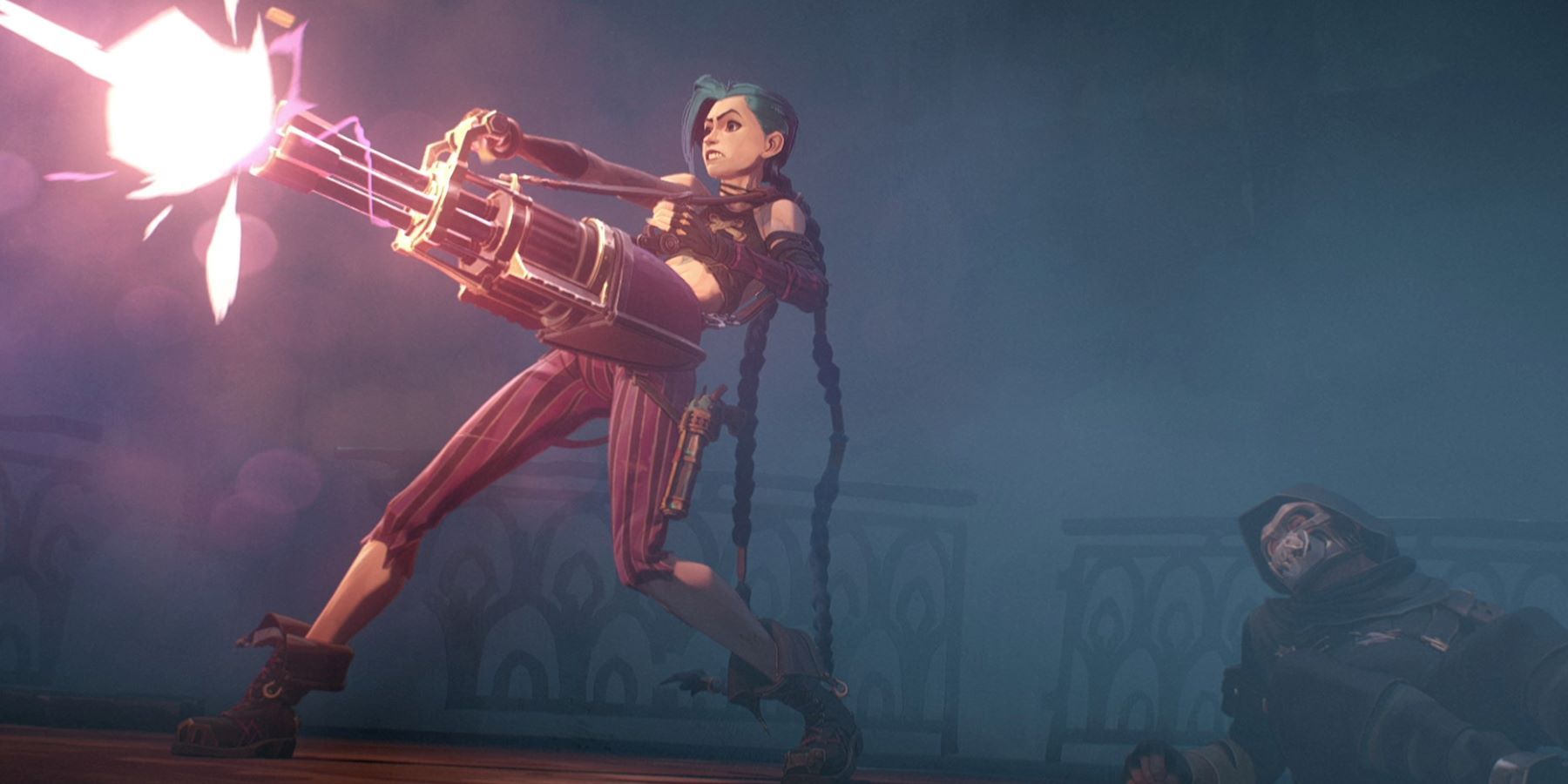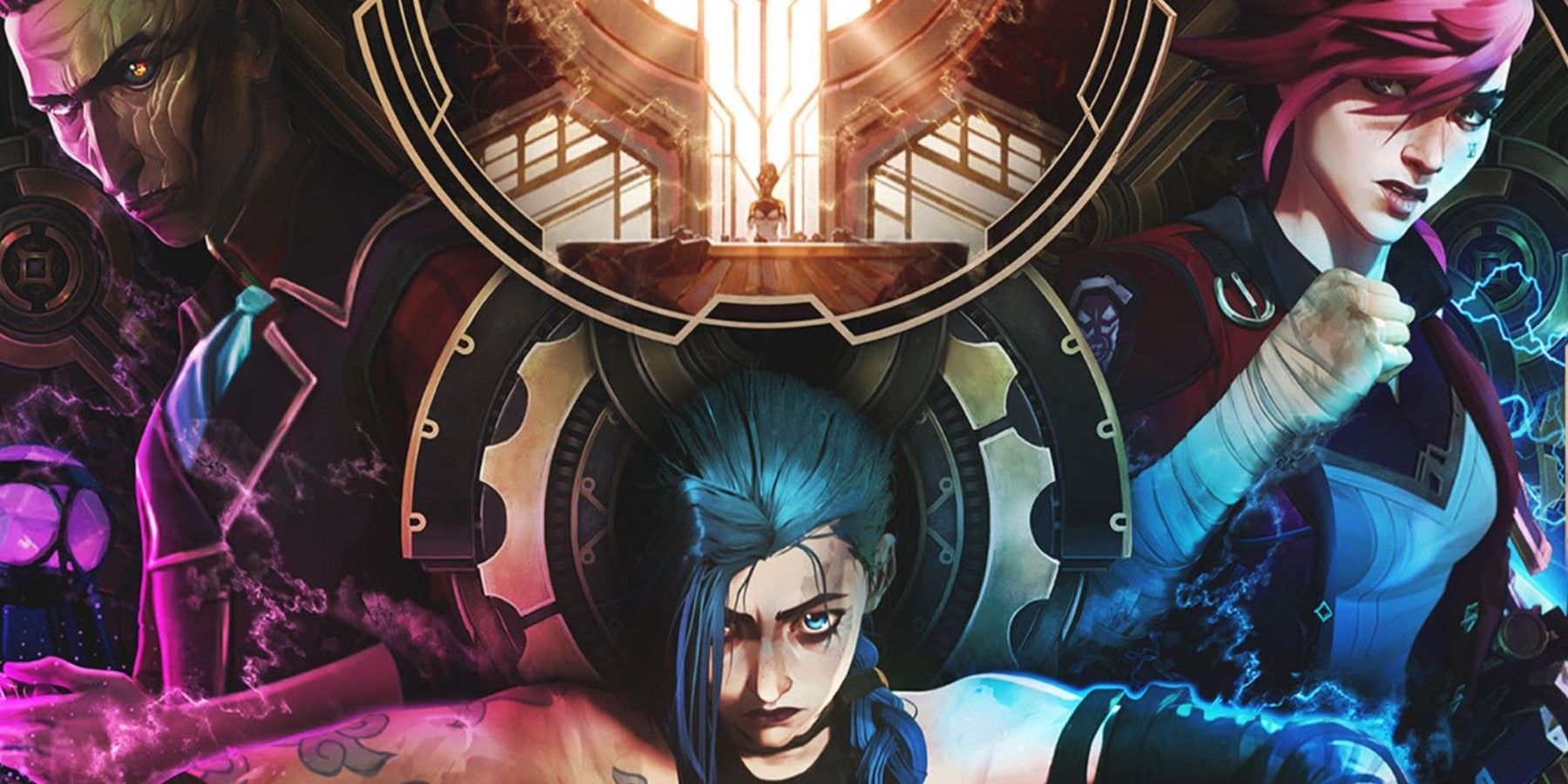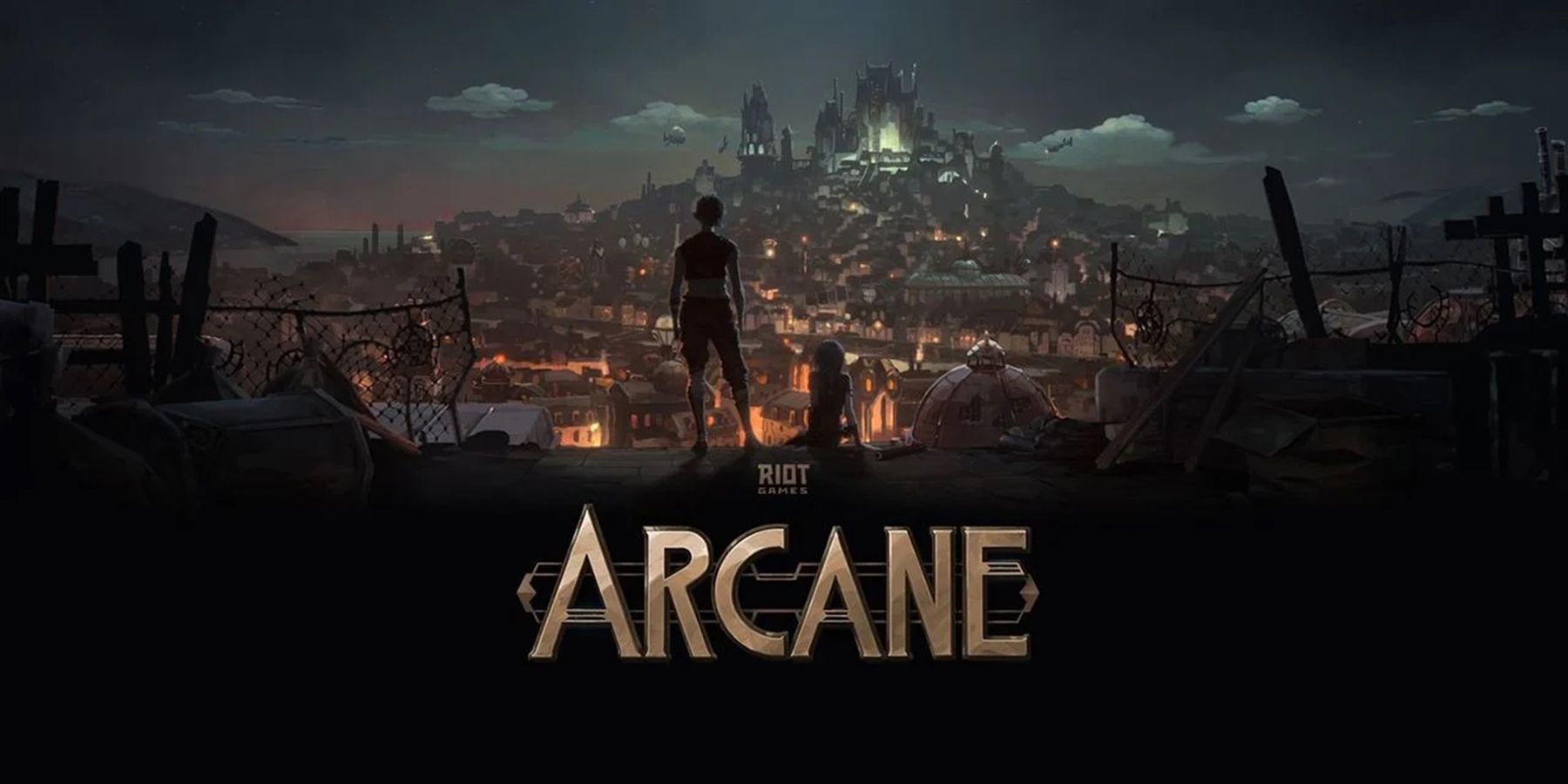No matter how acclaimed a video game may be, it always seems difficult to turn the game into a similarly acclaimed movie or TV show. Everything from Assassin's Creed to Monster Hunter to Super Mario has tried its hand at a cinematic adaptation, but game retellings seem to almost universally get a mixed reception. That's why it's remarkable that Riot Games seems to have cracked the code with its League of Legends miniseries Arcane. So far, Arcane is beloved by League of Legends fans and TV critics alike, making it stand out from the crowd. As such, Arcane may have set a new bar for video game adaptations.
It's almost shocking that the show has achieved so much so far, but there's a couple clear design choices that explain what Arcane does so differently. Arcane is very faithful to established League of Legends lore about Piltover and Zaun; the show does its best to depict these places and their denizens as Riot has already described them. At the same time, Arcane introduces a lot of new ideas to lore that build on League of Legends' characters and settings without rewriting them for the show's convenience. Although faith to the source material and eagerness to add new content sound contradictory, those two decisions by Riot Games and showrunner Fortiche are a big part of Arcane's stunning quality.
The Two Pillars of Arcane
There's so much about Arcane that's familiar to fans of League of Legends, even if they're not the type of fan who reads the official short stories about the MOBA or considers each character's backstory. Many of Arcane's main characters, from Jinx and Vi to Jayce, Viktor, and Heimerdinger, are all playable League of Legends champions whose aesthetics, personalities, and lives are reflected very closely in Arcane. The show was always intended to retell their origin stories, and so far it sticks very closely to what Riot has already said about these characters. What's more, the aesthetics of Piltover and Zaun are exactly what Riot has revealed so far in art of the twin cities. Fans love Arcane's dedication to LoL canon because it results in a sharp depiction of the game.
However, Arcane also makes a name for itself by being unwaveringly original in certain departments. For instance, there's tons of supporting characters in Arcane that are wholly new to League of Legends lore, like the menacing industrialist Silco and the calculating Piltover councillor Mel. These characters are woven into the stories of established League of Legends characters like Jinx, Vi, and Jayce, giving more context for their lives without refuting the backstories that League of Legends fans already know about. They add more detail to the world while giving Arcane the breadth of characters it needs to tell a compelling story.
Arcane's Success is Just the Beginning
Arcane blends old lore and new lore harmoniously. The content that Arcane adds sheds new light on LoL's established plot and settings, while the original lore serves as inspiring source material from which Arcane can create new things. Arcane doesn't stray too far from its source material like the Monster Hunter movie, but it also doesn't just rehash League of Legends in the way of the Ratchet and Clank movie. It strikes a balance between old and new that expands League of Legends without washing out the game's identity.The result is a complex but skillfully created show that appeals to watchers of all kinds: League of Legends fans, professional critics, and viewers with no connection to the game.
Any future studio that tries its hand at a video game adaptation should definitely take notes from Arcane. After all, there's more to the show's success than its storytelling; Arcane is also a success thanks to its art, voice acting, and more. Out of all the strategies that go into making Arcane, though, its balance between classic canon and new lore is the easiest to replicate, and perhaps the most important. If future adaptations use Arcane as a guiding light, then maybe there's cause for optimism about upcoming video game movies and shows.
League of Legends is available now for PC.



